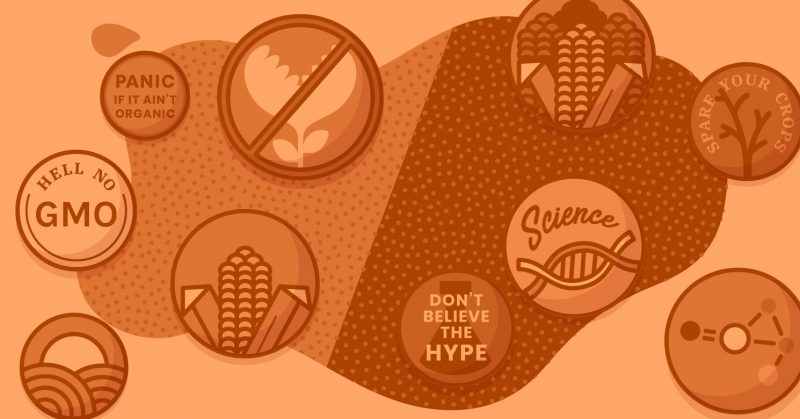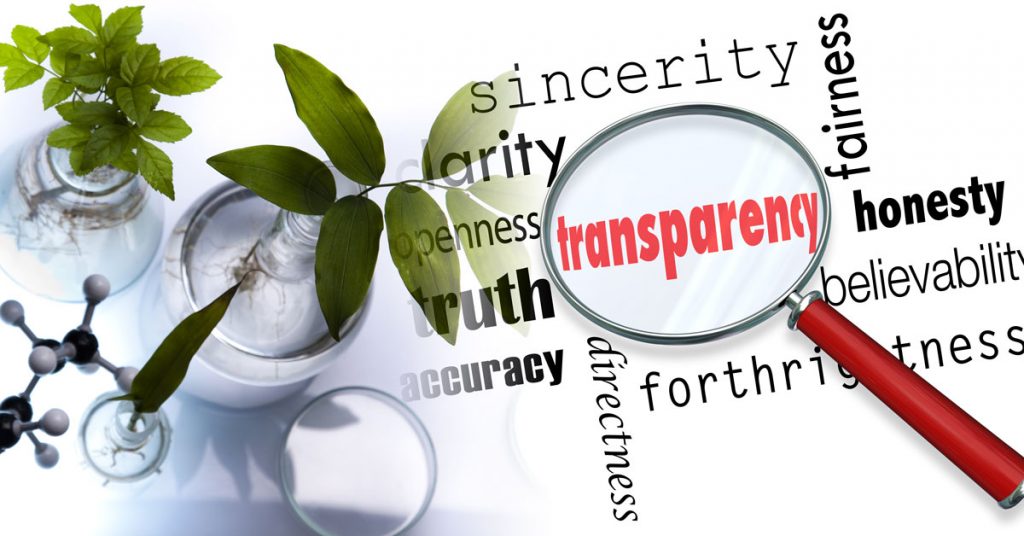Where can I get answers to my questions about GMOs?
By Emily Journey / Contributor
Much has been researched and written about the use of genetically modified organisms, or GMOs, in food. The findings and opinions are fervently divided.

Some reputable resources say GMOs are completely safe; activists groups and other organizations say they are dangerous, citing fact spinning, hidden agendas, and incomplete reporting on the part of the GMO supporters.
The purpose of this blog post is to present you with resources from both sides of the GMO debate: those that are pro-GMO, and those that are anti-GMO. As with any controversial subject, you will want to understand both sides. Below are resources listed for both pro- and anti- GMO websites, with a short summary of each and points to think about.
Pro GMO Resources

Photo by Iñigo De la Maza on Unsplash
The National Academy of Sciences, Engineering and Medicine
A private, non-profit organization, the National Academy of Sciences provides objective, science-based advice on critical issues facing the nation on matters related to science and technology. It was established by an Act of Congress, and was signed by President Abraham Lincoln in 1863.
In May of 2016, they released a report entitled, “Genetically Engineered Crops Experiences and Prospects.” The report takes a comprehensive look at genetically engineered crops, and whether they are safe to eat, have any environmental or social impacts, or if they reduce the use of pesticides. You can download the PDF for free here, but if you want a summary of the reports findings, you can read this article from Vox.
GMO Answers
GMO Answers is a website designed to answer questions about GMOs, what they are made of, how food is grown, and what the safety data says. There are articles, downloadables, infographics and videos available to educate their readers on agriculture, the environment, business practices, pesticides, labeling, and much more.
On their About page, they disclose that GMO Answers is funded by members of The Council for Biotechnology Information, which includes BASF, Bayer, Dow AgroSciences, DuPont, Monsanto Company and Syngenta. The experts who answer consumer questions on GMO Answers are not paid to answer questions, but they are employed by the same companies that fund GMO Answers, presenting a potential conflict of interest.
The Food and Drug Administration
The FDA regulates genetically engineered food just as it regulates all food, and its process is described on its website. It even created a Plant Biotechnology Consultation Program that works with genetically engineered plant developers to evaluate the safety of food from a new crop before it enters the market. They’ve evaluated over 150 GE plant varieties since 1994, but the consultation program is voluntary.
The World Health Organization
The World Health Organization was established on April 7, 1948 to provide global leadership in public health within the United Nations system. The WHO has a section on their website devoted to answering questions about genetically modified foods, why they were developed, its safety, and environmental concerns. While the World Health Organization has not published a statement condemning or praising GMOs, they have made a conclusive statement on the carcinogenic nature of Roundup, the pesticide created by Monsanto closely linked to genetically modified crops.
Anti-GMO Resources

The Institute for Responsible Technology (IRT)
The IRT investigates and reports about the risks and impact of GMO foods and crops, as well as problems with the current research, reporting, regulation and corporate practices. It was founded in 2003 by Jeffrey Smith, a GMO expert and international bestselling author. The website provides resources and information about GMOs, its impact on children, autism, and gluten disorders.
US Right To Know (USRTK)
USRTK researches what is going on behind the scenes in the food industry. They believe in transparency, and stand up for the right to know what is in food and how it affects health. The website contains a full page of GMO resources.
The Non-GMO Project
The Non-GMO Project reserves and evaluates sources of non-GMO products, educates consumers, and provides verified non-GMO products and retailers. It’s website explains their product verification process and provides a list of Non-GMO Project approved laboratories.
GMWatch
GMWatch is an independent organization that provides the public with the latest news on GMO foods and crops. Their website states that they “seek to counter the enormous corporate political power and propaganda of the GMO industry and its supporters.” GMWatch provides videos, articles, GM myths and even a “GM Myth Makers” database of all of the people and groups behind the push for genetic modification.
As with any controversial topic, the best place to find unbiased information is from news organizations and objective scientific studies. Here at GMOWatch, we’ve done most of the work for you, culling the internet for the most up-to-date research and news about GMOs available. Your most pressing questions can be answered here, including:
- What are GMOs?
- Are organic foods GMO-free?
- Where are GMOs banned?
- Do genetically modified foods have to be labeled in the US?
- Are GMO crops bad for the environment?
- Are genetically modified foods safe to eat?
What is your position on the use of GMOs in food? What are your thoughts on the resources above? We need to keep talking and asking questions. Please comment below and let’s get the conversation started!

I’m not convinced that GMO’s are safe for consumption by humans….I sure don’t Trust the list of Corporations that are behind this whole GMO push….Dow, DuPont, Monsanto, BASF, and Bayer to name a few. These corporations in my opinion have no concern about human health but out for the profits. Look at Monsanto and their product Roundup…they know what this chemical does to humans and didn’t care…they just care about profits. GMO’s need to be evaluated by an outside source that can’t be bribed or influenced. They want us all dead!